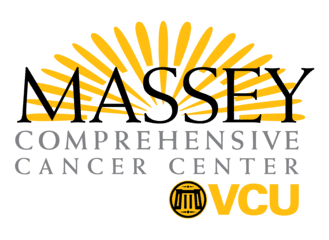The availability of effective COVID-19 vaccines is a welcome development in this pandemic. However, special consideration should be given to anyone having undergone autologous transplant, allogeneic transplant or CAR T-cell therapies. The timing, clinical characteristics and the type of vaccine must be considered before you are vaccinated. Before getting the vaccine, first consult with your Cellular Immunotherapies & Transplant provider at VCU Massey Comprehensive Cancer Center by contacting your post-transplant coordinator through the My VCU Health Patient Portal or by calling (804) 628-7290.
While research on the COVID vaccine in those who have had transplants and CAR T-cell therapies is limited, there is some data as well as prior experience with vaccination protocols for other agents that can serve to set an effective and safe COVID vaccine process. The following are the guidelines suggested for post-transplant patients.
CAR-T, autologous, and allogeneic transplant patients should only receive Pfizer/BioNTech and Moderna/NIH COVID-19 vaccine products at this time. This guidance only applies to these two vaccine products and may be subject to updates. While AAV/Adenoviral-based vaccines with simpler deployment logistics may soon be approved and available, they are currently untested and potentially unsafe for CIT patients.
Timing of vaccination
Recipients of autologous transplant, allogeneic transplant or CAR T-cell therapy should be evaluated for COVID-19 vaccination at Day +180 post transplant and not before then.
COVID-19 vaccination should be delayed for:
- Relapse or progression of underlying disease receiving therapy-strength chemotherapy
- Grade 3-4 acute GVHD
- prednisone at a dose >0.5 mg/kg/day
- Receipt of anti-CD20 monoclonal antibody within 6 months (e.g., rituximab, obinutuzumab, ofatumumab)
- Receipt of anti-thymocyte globulin or alemtuzumab within 6 months
- Temperature > 100.4 oF/38 oC in the last 48 hours
Consult with us before getting vaccinated
- Before scheduling a COVID vaccine, please consult with your Massey post-transplant coordinator through the My VCU Health Patient Portal or by calling the CIT Program’s dedicated vaccine telephone line at (804) 628-7290.
- Please contact the CIT Program when you receive your second dose, if it is performed outside of the VCU Health system, so that we can measure your post-vaccination COVID antibodies.
- If you experience any adverse events from vaccination, please report them to the CIT Program through the dedicated telephone line at (804) 628-7290.
Logistics of vaccination
- Administration of the vaccine in Massey and VCU Health clinics is based on available vaccine supply. Initial supply of these vaccines is severely limited and is made available to Massey and VCU Health by the Virginia Health Department.
- Because the vaccine has a short shelf life and requires special storage, advance planning for administration is needed.
At VCU Massey Comprehensive Cancer Center, our intention is to ensure that all post-transplant patients will receive COVID vaccine protection. We also will provide coverage for the critical caregiver of patients who are ineligible for vaccination. Please contact us at (804) 628-7290 with any questions regarding the COVID vaccine.
COVID-19 booster shots for the immunocompromised
The Centers for Disease Control and Prevention (CDC) is recommending that moderately to severely immunocompromised people receive an additional COVID-19 vaccine dose. This recommendation arises from recently published data showing a lower vaccine response in patients with reduced immune function who received the full two doses of the Pfizer or Moderna COVID-19 vaccine. The third vaccine dose has been shown to offer increased protection against COVID-19.
At this time, this recommendation does not apply to patients who received the Johnson & Johnson single dose vaccine or other COVID vaccine manufacturers.
The recommendation applies to patients over the age of 12 years (Pfizer) or 18 years (Moderna).
The recommendation for a third dose of the Pfizer or Moderna vaccine is for patients who have:
- Been receiving active cancer treatment for solid tumors or cancers of the blood
- Received an organ transplant and are taking medicine to suppress the immune system
- Received a stem cell transplant within the last two years or are taking medicine to suppress the immune system or to treat for graft-versus-host disease (GVHD)
- Moderate or severe primary immunodeficiency, such as DiGeorge syndrome, Wiskott-Aldrich syndrome or aplastic anemia
- Advanced or untreated HIV infection
- Active treatment with high-dose corticosteroids or other drugs that may suppress your immune response due to therapy for blood cancers or for autoimmune diseases
If you have one of these conditions, ask your health care provider if you should receive a third dose of vaccine. If you are a VCU Health patient, you can schedule your booster shot with your VCU Health provider.
The booster shot should be given no sooner than 28 days from the completed second dose of the Pfizer or Moderna vaccine. The vaccine should be of the same manufacturer as the initial vaccine received, if possible. That means if you originally received the Pfizer vaccine, you should receive the Pfizer booster. If you received the Moderna vaccine, you should receive the Moderna booster, if possible.
The CDC also recommended a third dose of the Pfizer or Moderna vaccines “for all Americans beginning the week of September 20 and starting 8 months after an individual’s second dose. At that time, the individuals who were fully vaccinated earliest in the vaccination rollout, including many health care providers, nursing home residents and other seniors, will likely be eligible for a booster.”
References
CDC Recommendations on COVID Booster Dosing, updated August 13, 2021:
https://www.cdc.gov/coronavirus/2019-ncov/vaccines/recommendations/immuno.html
https://www.cdc.gov/vaccines/covid-19/clinical-considerations/immunocompromised-patients.html
Joint Statement from HHS Public Health and Medical Experts on COVID-19 Booster Shots, issued August 18, 2021:
https://www.cdc.gov/media/releases/2021/s0818-covid-19-booster-shots.html
Fact sheets:
Pfizer: https://www.fda.gov/media/144414/download
Moderna: https://www.fda.gov/media/144638/download
This information is accurate as of August 19, 2021.
